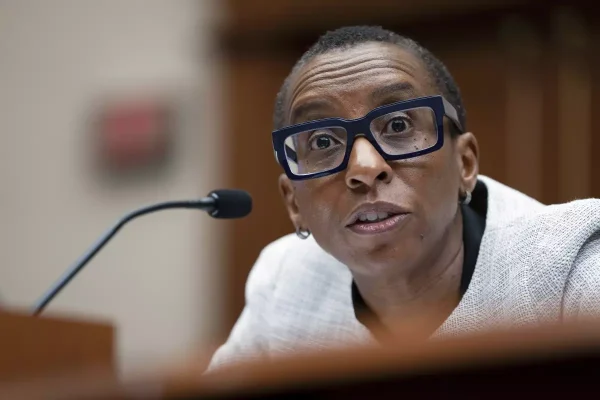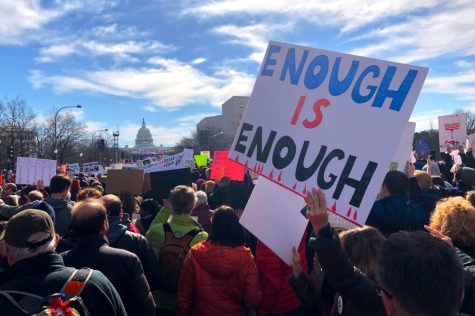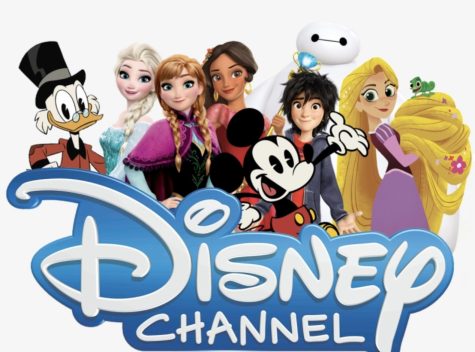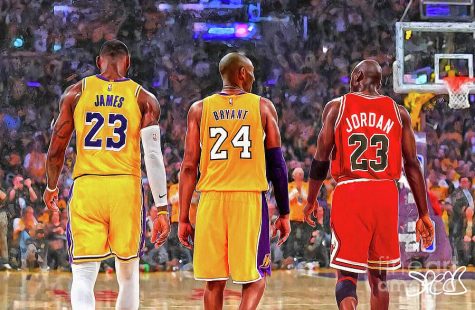Opinion: College Athletes Deserve Respect Too
February 3, 2017
As Spring of senior year is rapidly approaching, high school seniors around the country are making a decision that will determine where their next four years of life will take them: where to attend college. They are considering the costs of tuition, distance from home and if the school has their major. Many of them are feeling great joy as their hard work in high school is paying off, but are anxious as a new journey in their life is about to begin.
Student-athletes around the country are also making very important decisions at this time of the year. Athletes that have worked hard enough, in the classroom and in the weight room, and have been fortunate enough to earn an athletic scholarship, are deciding where they will continue on their athletic and academic career. They are considering which coaching staff will be the most helpful to them, if the school is close enough for their family to come watch them play and if that school will allow them to achieve as much academically as they can athletically. They are Feeling that same joy as other high school seniors, and relief in knowing that all they have done will pay for their college education. However, they are also feeling high levels of anxiety knowing that the hard work is just beginning.
The similar processes that seniors all over America, athlete or not, take to decide on their future are however viewed through different lenses. A lot of students hold bitter feelings towards the path student-athletes take to get their free education. According to the College Board, the average cost of tuition and fees for the 2016–2017 school year was $33,480 at private colleges, $9,650 for state residents at public colleges, and $24,930 for out-of-state residents attending public universities. But Division I athletes in the NCAA attend these same universities free of charge. They will not have to worry about student loans after college, or working at a diner or the school’s library to pay for the cost of books. They do not have the same struggle as a typical college student.
Student-athletes are often criticized for not having the same academic standards as other college students. To be eligible for a Division I athletic scholarship, you need a 2.3 GPA and to match that with at least a 74 on the ACT or 890 on the SAT. While high school seniors with a 3.5 GPA and a score of 1460 on the SAT are having to fill out financial aid packages to pay for college. It is understandable why students achieving in the classroom question how athletes whose grades may not be able to compare with the grades of students like them are getting their education for free. But they have to realize that college athletes have a college experience that is different from anyone on campus.
With that being said, I think it is unfair to overlook the fact that student-athletes have their own problems, or to argue that their struggle is minuscule because they are receiving a degree for free. Lets take a look at the average Division I football player’s schedule: an 8 a.m. class, lunch at 12 p.m., weight room from 12:30-1:30 p.m., lunch with the team until 2:30 p.m., a team meeting from 2:30-3:30 p.m., followed by two hour practice until 5:30 p.m., dinner at 6:30 p.m. with the team and study hall from 7:30-9:00 p.m. With whatever free time they have left after this day, student-athletes can attempt to fit in some type of social life, finish homework and get some sleep.
I don’t know of any college student that takes their parties, opportunities to meet new people, time to study, time to sleep, or any of the college experience for granted. Free time is a luxury in college and treated like gold, but student-athletes often have 12-15 hour days. In addition to all of the work that athletes put in studying film with the coaches, lifting weights and on the practice field or court, they are expected to perform in the classroom. Despite the difficult challenge presented by the life of a student-athlete, college students continue to discredit the fact that they have earned a free education.
There is also the issue of money. Students argue that athletes shouldn’t complain because their education is being paid for while that participate in a hobby that they enjoy. But playing a Division I sport in exchange for your tuition being paid for should be compared to being underpaid for your work on a job. Currently a Division I football player devotes 43 hours a week to his sport, while the standard work week is 40 hours a week. Student-athletes are employees working 12-15 hour days, making around $35k a year (or the cost of their tuition) for a multi-billion dollar company. In my opinion, student-athletes giving away the best years of their life, while making the NCAA billions of dollars and getting spare change in return.
Student athletes deserve to be respected, after all there aren’t many people that would trade for a day in their shoes.











